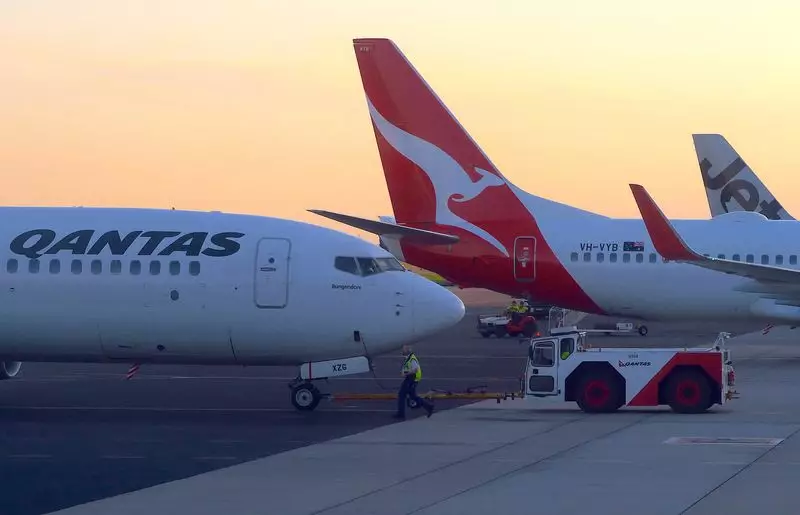In a significant ruling, a federal court in Australia ordered Qantas Airways to compensate three former baggage handlers who were unlawfully terminated in 2020. This decision forms part of a larger legal dispute impacting approximately 1,700 workers, whose positions were outsourced amid the financial turbulence caused by the COVID-19 pandemic. The substantial payout of A$170,000 (around $114,000) reflects the court’s recognition of the personal and professional harm inflicted on the affected individuals.
Federal Court Judge Michael Lee’s decision underscored that the dismissals were not justifiable under the guise of cost-cutting. Each of the three workers is set to receive varying amounts—A$30,000, A$40,000, and A$100,000—designed to address non-economic losses. This ruling is particularly pivotal as it implies that Qantas’s actions were not merely an effort to manage economic realities but also a blatant disregard for workers’ rights, specifically aimed at avoiding potential industrial action during a precarious time.
The implications of the judge’s findings are far-reaching. Lee suggested that had Qantas chosen to follow legal protocols regarding the outsourcing of its ground operations, it would have been able to save significant funds legally the following year. This revelation challenges the airline’s narrative of justifying the sackings based on economic necessity during a crisis.
Despite this ruling, the full damages owed to all affected workers remain undefined. The ruling acts as a benchmark for Qantas as it prepares to negotiate with labor unions for appropriate compensation for the broader group of sacked employees. The airline’s assertion that the layoffs were a necessity due to pandemic-related financial struggles has not only exposed it to legal repercussions but also damaged its public image.
Compounding this issue is Qantas’s recent history of questionable business practices, including selling tickets for flights that were already cancelled. The airline has previously faced substantial monetary penalties and regulatory scrutiny, further complicating its efforts to restore its reputation. Critics argue that Qantas’s attempts to “turn over a new leaf” appear superficial unless genuine steps are taken to rectify past grievances and ensure fair treatment of its workforce.
As Qantas seeks to navigate this turbulent period, the responsibility now rests on the shoulders of its leadership, including the newly appointed CEO Vanessa Hudson. In a statement, Hudson expressed remorse towards those affected and recognized the company’s urgent need to learn from these missteps. The upcoming discussions with the Transport Workers Union (TWU) are crucial, as they will determine the potential compensation not only for those directly involved in this case but also for the larger group of dismissed workers.
The upcoming court session on November 15 could prove to be a critical juncture that shapes the future dynamics between Qantas and its employees. For an airline striving to recover its standing in the market, the path ahead may well depend on its willingness to confront and rectify its past transgressions. In an industry where public trust is paramount, the stakes have never been higher for Qantas Airways.

